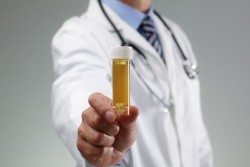
The data are in from the first year of drug testing people applying for welfare benefits in Tennessee. Like every other state that pursues this policy, they only ended up wasting money and catching only a tiny fraction of the applicants with a failed drug test.
Florida pioneered this cruel idea by requiring that all people applying for welfare had to take a drug test. The applicant would pay for this test, to be reimbursed if the applicant passed the test. During the four months it was in operation, the program tested 4,086 applicants. Of those, 108 tested positive. That is a positive rate of 2.6 percent, far lower than the national rate of drug use at 9.4 percent. That program cost taxpayers of Florida $118,140, or well over $1,000 per positive test.
When researchers examined the results of the Florida program, they found “the procedures employed by the State of Florida did not produce reliable estimates of the level of drug use among [welfare] beneficiaries”.
It also cost Florida about $1.5 million in legal fees when it lost the resulting lawsuits over the program. The federal courts invalidated the welfare drug testing requirement for not requiring any reasonable suspicion that a poor person applying for welfare is a drug abuser. Searching every person applying for welfare, the courts decided, was an unconstitutional breach of the 4th Amendment rights that even poor people still have.
So the states that have followed Florida in punishing poor people over unreal stereotypes have added a wrinkle to their scheme. While applying for welfare, applicants answer questions in a small quiz designed to root out those who might be drug users, thus providing the reasonable suspicion needed to pass constitutional muster. In Tennessee, the questions asked are:
- Have you used illegal drugs before?
- Have you lost or been denied a job because of drug use?
- Have you had any scheduled court appearances in the past three months related to drug use?
Of the 28,559 people asked those questions in Tennessee, only 468 answered “yes” to any of them, and therefore tested. That’s a rate of 1.6 percent, which surely must mean some of these people are lying, since the general rate of drug use in America is 9.4 percent and the lifetime use rate is over half. Even if poor people don’t use drugs as much (since they cost money), there’s no way the rate is as low as 1.6 percent.
Then of the 468 people tested, only 55 came up positive for any drug. That’s a rate of almost 12 percent among those tested, but a rate of 0.19 percent among all welfare applicants. Nabbing those 55 cost Tennessee $11,000 in testing, which works out to $200 per applicant caught.
Defenders of the laws will claim that we can’t criticize by the low rates of failed tests because the tests themselves deter drug users from applying in the first place, thus saving the state money. They’ll also claim that the cost of catching the one drug user is supplanted by the savings in not providing welfare to that person.
It’s difficult to prove the first claim. There are many factors that influence the rate of applications for welfare. As the economy improves and people get jobs, the welfare rolls decrease. It’s hard to accept that the three-quiz questionnaire is dissuading many people from applying when only 1.6 percent are caught by it and only 0.19 percent are actually deterred. The second claim may be true in some cases, but the average benefit per family per month on welfare in Tennessee is only about $164.
Regardless, think about what “success” is defined as here: denying welfare to a poor person in need. Are we supposed to celebrate that a poor person and their kids may go hungry and sleep in the streets because some drug test identified her as someone who smoked pot at some recent time in the past? What is the eventual cost of the emergency services they’ll need; will they exceed that $200 spent on denying them $164?
The push for drug testing for welfare is nothing more than grandstanding politicians looking for ways to seem tough on government spending while demonizing the poor and drug users. The idea seems to be that we taxpayers shouldn’t subsidize a poor person’s drug habit, yet nobody proposes testing welfare recipients for their alcohol and tobacco use. Given that most of the people failing drug tests are bound to be failing for marijuana, this amounts to ferreting out the poor who will cost society the least while incentivizing them to use the legal drugs that will cost society more.
It’s somewhat hypocritical, as well, when many of these politicians grandstand all the time about getting big government out of our lives. Apparently, though, if you’re a poor person in need of assistance, big government owns your life and can dictate what you do with it. Witness recent attempts in Wisconsin to ban food stamp recipients from buying shellfish, pickles, and sharp cheddar cheese; in Missouri to ban purchase of cookies, soft drinks, and steak with food benefits; and in Kansas to ban withdrawal of more than $25 cash, going to movies, or spending welfare money anywhere minors aren’t allowed.
And it’s highly selective. Nobody is proposing any rich beneficiaries of government welfare to pee in a cup. You don’t see the CEOs of Boeing or General Electric being quizzed about their drug history for the billions in subsidies and tax breaks they get from the government. Whether or not some white collar executive receiving billions in welfare enjoys some white powder isn’t a concern, but the pot use of a single mom receiving $164 to help pay the rent requires our diligent attention.






